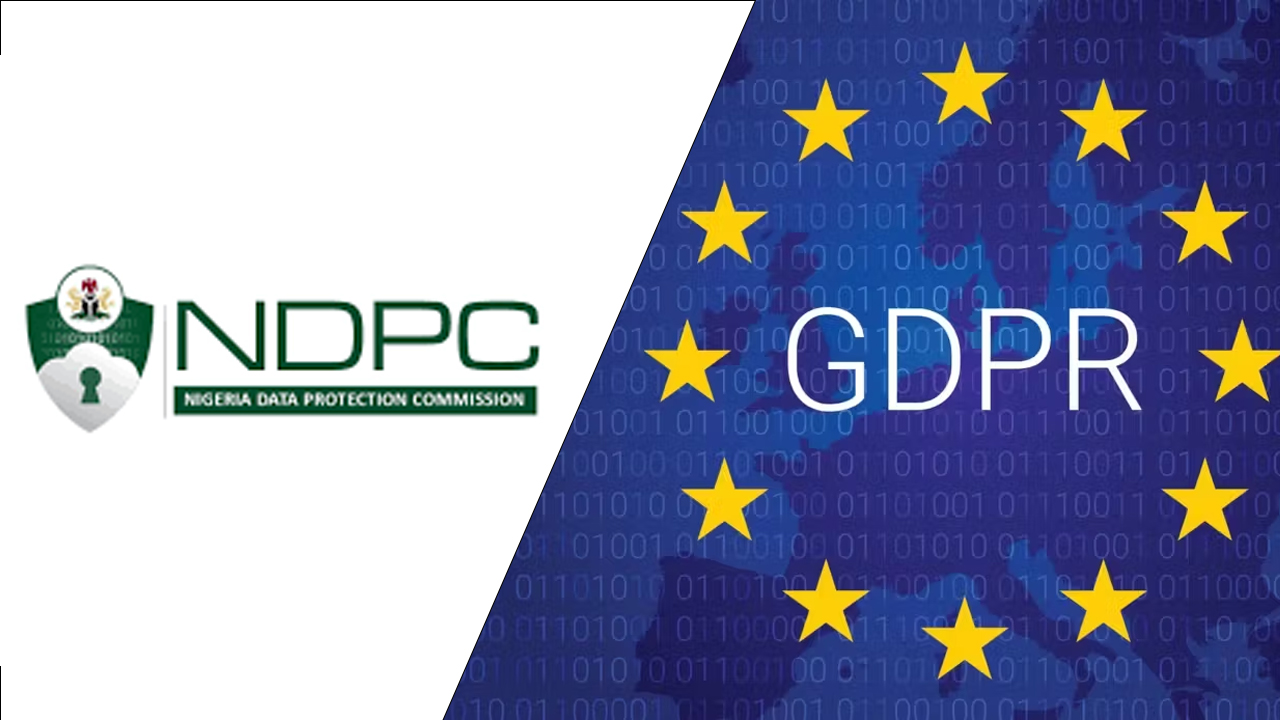Nigerian businesses handling personal data must navigate dual regulatory landscapes: the Nigeria Data Protection Act (NDP Act) 2023 and the EU's General Data Protection Regulation (GDPR).
As cross-border data flows surge, aligning with both frameworks prevents fines, builds trust, and unlocks global opportunities.
This guide analyzes key overlaps and strategies, drawing from the NDP Act's General Application and Implementation Directive (GAID) 2025 and GDPR resources.
Understanding the NDP Act
The NDP Act safeguards privacy rights under Nigeria's 1999 Constitution, mandating principles like lawfulness, fairness, transparency, purpose limitation, data minimization, and accountability.
Businesses designate Data Protection Officers (DPOs), conduct Data Privacy Impact Assessments (DPIAs), and notify breaches within 72 hours (NDP-ACT-GAID Article 33).
It applies to data controllers processing Nigerian residents' data, emphasizing lawful bases such as consent, contract, or legitimate interest (NDP-ACT-GAID Articles 16-26).
Key Principles of GDPR
GDPR enforces similar protections for EU data subjects, requiring lawful processing, explicit consent for sensitive data, and rights like erasure ("right to be forgotten").
Organizations appoint DPOs for high-risk activities and perform DPIAs. Breaches demand notification within 72 hours. The UK's Information Commissioner's Office (ICO) provides comprehensive guidance.
Similarities and Alignment
Both regimes share core principles: lawfulness, transparency, and accountability, facilitating harmonized compliance.
For instance, the NDP Act's lawful bases mirror GDPR's (e.g., consent, vital interests), and both prioritize DPIAs for risky processing (NDP Act Article 28; GDPR Article 35).
Nigerian firms exporting data to the EU benefit from this alignment, as the NDP Act's cross-border transfer rules (Article 45) support GDPR's adequacy decisions.
Adopting GDPR's standards often satisfies NDP Act requirements.
Navigating Differences
Differences arise in scope and exemptions.
NDP Act exempts household processing and national security (Article 5), while GDPR's exemptions are narrower, excluding purely personal activities but strictly regulating public authorities.
NDP Act classifies "major importance" controllers by data volume (Article 8), unlike GDPR's risk-based thresholds.
Businesses must assess territorial applicability: NDP Act covers data targeting Nigerians (Article 1), while GDPR applies to EU-targeted processing.
Practical Compliance Steps
1. Implement a unified framework
2. Appoint a DPO proficient in both the NDP Act and GDPR processes.
3. Conduct joint DPIAs and Legitimate Interest Assessments (LIAs) (NDP Act Schedule 8; ICO LIA guidance).
4. Use Standard Contractual Clauses for transfers.
5. Train staff annually (NDP Act Article 30) and audit via Compliance Audit Returns (Article 10).
6. Persuade stakeholders: Compliance reduces risks, GDPR fines reaching up to €10 million or 2% of global annual turnover for lower-tier and up to €20 million or 4% of global annual turnover for higher-tier, while the NDP fines up to N10 million or higher, depending on the violation and the organization's status.

